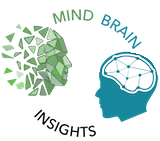Although brain science has amassed much valuable knowledge, understanding is lacking. There is no brain theory. Nor is their a cognitive neuroscience framework: how the brain functions in relation to the mind. How does the brain create, compute, mediate or process sensation and perception? How does it perform or support recognition, identification, meaning, thought, emotion, executive control, goals, attention, intention, motor control and learning? A theory of how the brain enables human mental states and processes remains elusive. As Jeff Hawkins often says, “neuroscience is data rich and theory poor.”
A brain theory is however needed and would be of great value. It would be a useful tool to enhance any applied neuroscience research group. The mind/brain relationship is the foundation of neural decoding, signal classification, and neuroimaging. CNS medicine and biomarker development, neurorobotics, BCI, neuroprosthetics, knowledge representation, NLP, AI/AGI and many other fields would benefit greatly.
For a viable brain theory to emerge, it would first need to be understood. Then, it could be evaluated and tested experimentally. Certain terms are needed to describe and communicate such a theory. By default one would expect it to use standard brain science terms, including those of cognitive neuroscience. These include terms like perceptual processing, semantic & working memory, executive function, the reward system and so on. It’s reasonable to assume this given that academia uses these terms. Most of cognitive neuroscience knowledge is represented by specialized cognitive neuroscience terms, as listed in Russell Poldrack’s cognitive atlas.
However a new theory would by definition be built from new ideas. These would require at least some new terminology, in order to convey the new concepts or viewpoint. Current terms are a reflection of its current ideas and underlying assumptions. New terms would be needed to reflect a change in thinking.
For example, a foundational concept underlying brain science is materialism. The brain is physical and therefore the most real thing about the mind. Does the immaterial mind even exist? Perhaps the subjective mind is actually “the brain” and can be “reduced” to it.
However what if materialism is half the story? What if both the brain and the subjective were to manifest — inside the brain? And the former could be then mapped to the latter, to reverse-engineer it. Here the mind would required scrutiny AS a subjective or experiential phenomenon, not as some extension or epiphenomenon of the brain. In this case, established cog sci terminology based on materialism might not be the best way to describe this new (mind-first) approach to understanding the brain.
On the other hand, there are good reasons for a new brain theory to consider using standard cognitive neuroscience terms. All academic knowledge of the system is reflected by them. They are the repository of what is currently known about the brain in relation to the mind. Our understanding of the system is greatly advanced by (animal and human) lab experiments, neuroimaging data and its analysis. Terms such as “executive control, reward system, visual processing, cognitive workload” etc. are a reflection of these experiments and data The brain is said to mediate cognition, process short term and semantic memory, trigger the reward system, and engage in executive functions. These terms, and hundreds more, represent our knowledge of the mind/brain system.
Despite the knowledge they represent, however, I argue these categories are far from optimal. The (conscious and unconscious) mind is much larger than cognitive neuroscience categories represent. Consciousness includes all types, specific instances, and aspects of experience. The mind includes all of human knowledge, understanding and meaning. It also encompasses moment by moment experience: what we see, hear, feel, recognize, understand,, think, imagine, attend to, intend, learn and so on. This incredibly large body of information — the total set of mental states and processes involved — is flexibly expressed on demand to meet one’s goals in a given circumstance.
Cognitive neuroscience terms can be very useful, and represent valuable information about the mind/brain connection. At the same time, they unnaturally restrict it. I argue less than 5% of the system is represented by these terms. The other 95% is represented by everyday language reflecting world knowledge.
Consider the reward system. Rewarding thoughts and feelings are constantly taking place. Every few seconds a number of rewards occur. Many are subtle, such as “I understood that sentence,” “that point I agree with,” “a mild sense of relief to be nearing the end of this essay,” or “feeling excited about idea x, and interested in researching it.” Rewards are not only omnipresent, but what feels rewarding changes through time. What one thinks of or finds rewarding one day might change tomorrow, and be completely different next week. One’s mind, body and world are constantly evolving. Many other variables — culture, life circumstances, career, family…– change continually as well. Two rewarding experiences are never exactly the same.
The point is it’s simplistic to conceive of “the reward system” in the brain as a single feature. The term “reward,” though interesting and useful, represents a tiny% of what is really going on in the mind, and the brain, as a rewarding experience occurs. To accurately reflect the mind and its neural correlate, terms are needed that not only represent reward generally but in all of its manifestations.
Overall, any viable brain theory will be supported by a body of terminology that reflects a whole new way of thinking about the system. Given how far we are from a brain theory, any proposal — if correct — would have to be a radical departure from current thinking. And the terminology it uses would reflect this.
